Beach plum
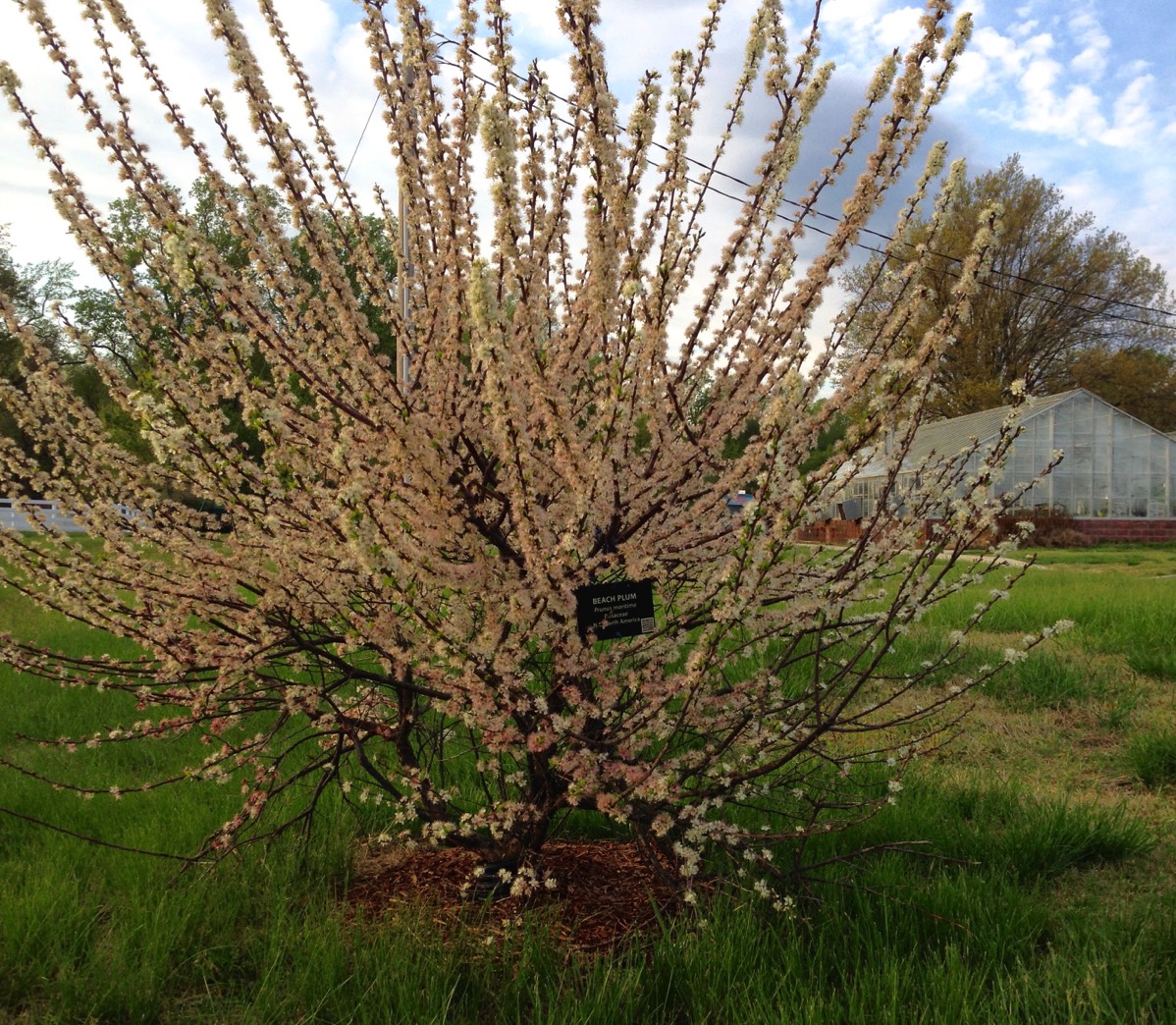
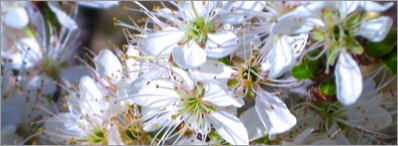
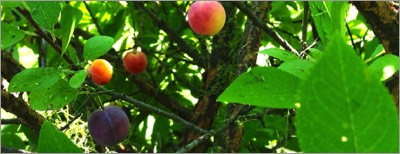
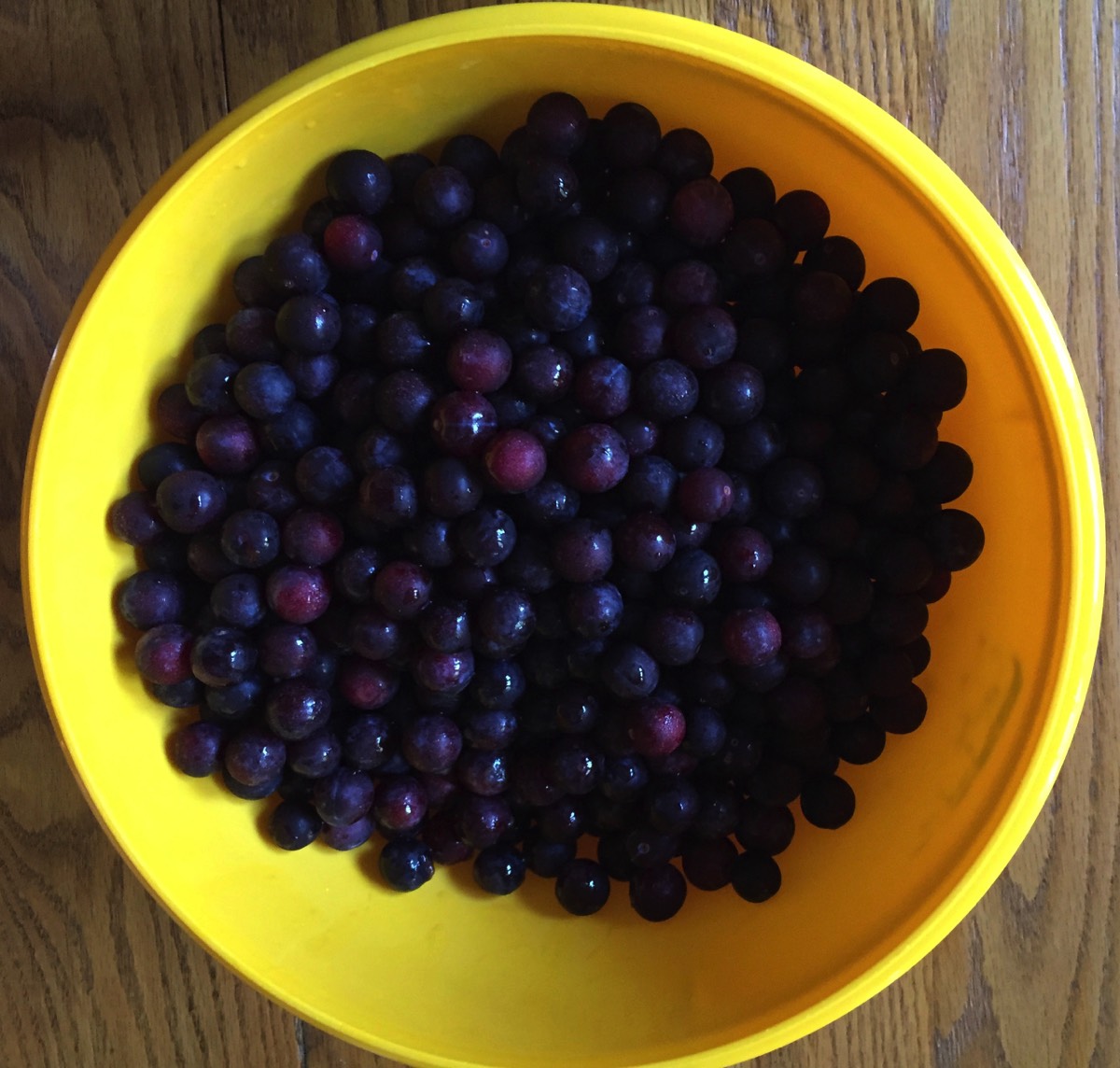
Prunus maritima
BEACH PLUM
Rosaceae
N.E. North America
Location: map coordinates T-5 (near southwest corner of parking lot #6), N 39°11'8'' W 75°32'49''
Planting history: planted 5/6/10. Source: Willey Farms, DE. (Dr. S. Yost, USDA NIFA Capacity Building Grant funds).
Description:
Native species, State Rank S3 (uncommon, but not of conservation concern, yet), on Delaware coastal plain, in Kent and Sussex Counties
BEACH PLUM
Rosaceae
N.E. North America
Location: map coordinates T-5 (near southwest corner of parking lot #6), N 39°11'8'' W 75°32'49''
Planting history: planted 5/6/10. Source: Willey Farms, DE. (Dr. S. Yost, USDA NIFA Capacity Building Grant funds).
Description:
- deciduous shrub (sometimes a small tree), to 6’ tall, dense growth to 7’ wide
- etymology: Prunus = Latin name for plum tree; maritima = of the sea
- flowers white, turning pink; April-May
- fruit drupe (stone fruit); purple-black to red; edible, eaten raw or in jellies and jams; mature late July-early August in Delaware
- roots sprout from sand-covered lower branches, forming colonies
- natural habitat: full sun, sandy soil, coastal dunes; but does well in moderately fertile, slightly acidic, loamy, well-drained soils. Does not do well in heavy clay soils
- native from Maine to Maryland; hardy to zone 3; in Delaware, dunes of southern Delaware Bay and Atlantic Coast
Native species, State Rank S3 (uncommon, but not of conservation concern, yet), on Delaware coastal plain, in Kent and Sussex Counties
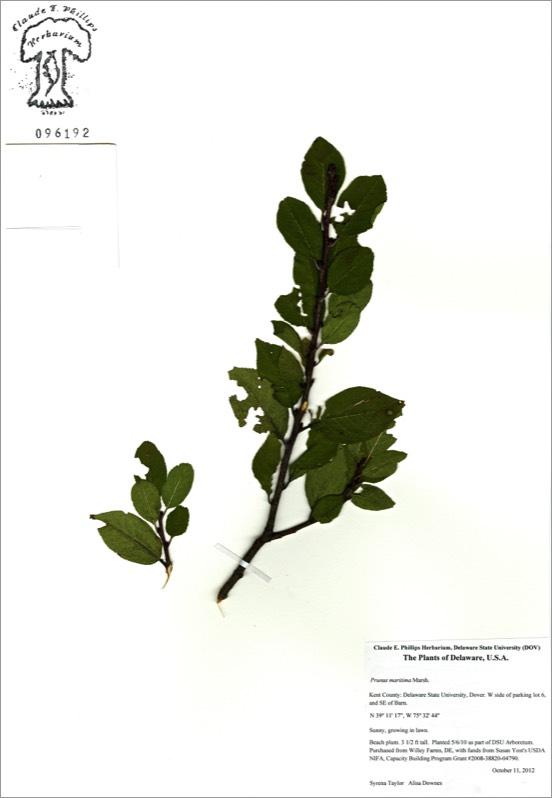
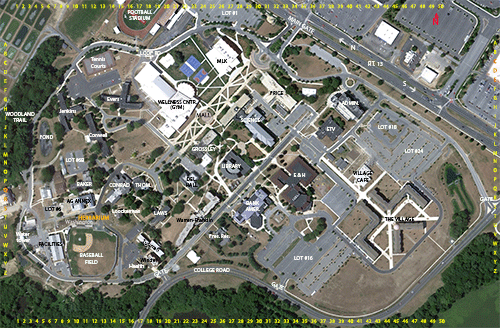
HIT REFRESH TO START LOCATION GRAPHIC